30. June 2021
Sustainable & Smart Mobility: Flix launches first international biogas buses
+ Renewable biogas-powered buses to drive between NL and BE and between SE and NOR from July 1
+ Biogas is promising alternative fuel with a proven track record in inner-city traffic
+ Climate-friendly biogas with around 75% less CO2-emissions than diesel operations on same route (calculation by NGO atmosfair), sourced by OG (OrangeGas) (Bio-CNG) and Gasum (Bio-LBG)
+ Buses built by European manufacturers Iveco and Scania and operated by local FlixBus partners
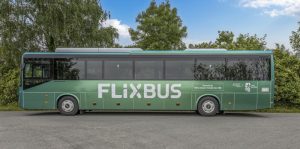
Munich, June 29, 2021 – FlixMobility, the leading tech-mobility company for intermodal and sustainable mobility, takes the next step to a greener future of mobility: Starting July 1, the first international biogas-powered buses will drive between Amsterdam and Brussels and between Stockholm and Oslo. The bus between the Netherlands and Belgium will be powered by compressed natural gas (Bio-CNG) and is produced by Iveco while the bus running between Sweden and Norway will be powered by liquified biogas (LBG) and is a Scania model. To ensure that these buses are only fueling up the most climate-friendly biogas, FlixBus partners with gas providers OG (OrangeGas) and Gasum.
André Schwämmlein, Co-Founder and CEO FlixMobility: “After the strenuous last 1.5 years, more and more people start travelling again and the demand for bus travel is rising. Green-tech is at the core of our business and one of our key sustainability drivers: We ensure that the resurgence of travel is sustainable, and biogas is certainly one of the most important technologies to achieve this already today.”
Biogas as a near-term solution to significantly reduce emissions
While regular FlixBuses are already the most climate-friendly means of transport in many countries, renewable biogas offer a great chance to further reduce the CO2-footprint of collective travel. Both technologies are available along a great part of our European routes. Its availability will improve quickly throughout Europe, especially as the EU decided to make fueling points for road fuel gas available along main European road networks (TEN-T). From trying alternative fuels in different projects, the company plans to get a better understanding of how the technologies are perceived by bus partners and customers but also explore operational constraints, advantages, and a potential impact on operational cost.
In order to introduce these two buses to the FlixBus fleet, the company made sure to choose routes where climate-friendly renewable biogas is already available and cooperated with Iveco and Scania on a remodeling of existing biogas bus models to offer even more comfort on its long-distance routes.
atmosfair, the climate-NGO Flix partners with for climate strategy and CO2-offsetting, is involved to verify the biogas origin and make sure Flix receives the greenest gas possible. Their preliminary calculations indicate a CO2 reduction of around 75% compared to diesel operations on the routes between Amsterdam and Brussels and between Stockholm and Oslo.
Agnostic about technology: Flix builds on a future with alternative fuels
These biogas buses are only the latest addition to the sustainable Flix fleet. In 2018, FlixBus started piloting the world’s first all-electric long-distance buses in Germany, France and the USA. In late 2019 the company announced a collaboration with German technology company Freudenberg and its plans to build the first long-distance hydrogen bus. A bus running between London and Dortmund is equipped with solar panels that enable the bus to save around 7% of fuel on this route. All FlixTrains are powered by 100% green electricity.
Schwämmlein: “Our vision is to offer sustainable mobility to everybody. That is why today, and, in the future, we will be among the first to try out new, sustainable technologies. Together with our bus-, industry- and NGO partners we are constantly looking to further improve our CO2-footprint and continue to drive transformative change in the mobility sector via cross-sector partnerships. In order to speed up the process, we rely on political attention, investment, and the right policy incentives to develop even more alternative fuels and infrastructure.”
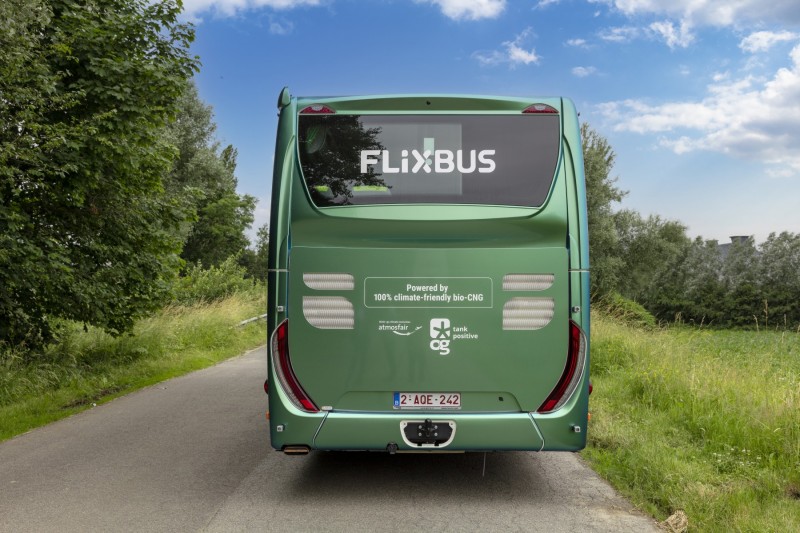
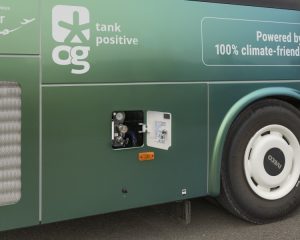
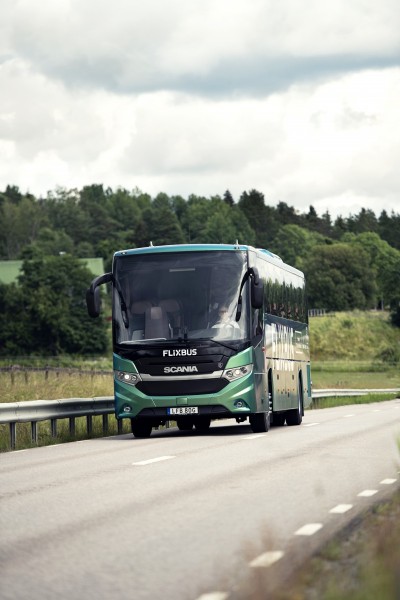
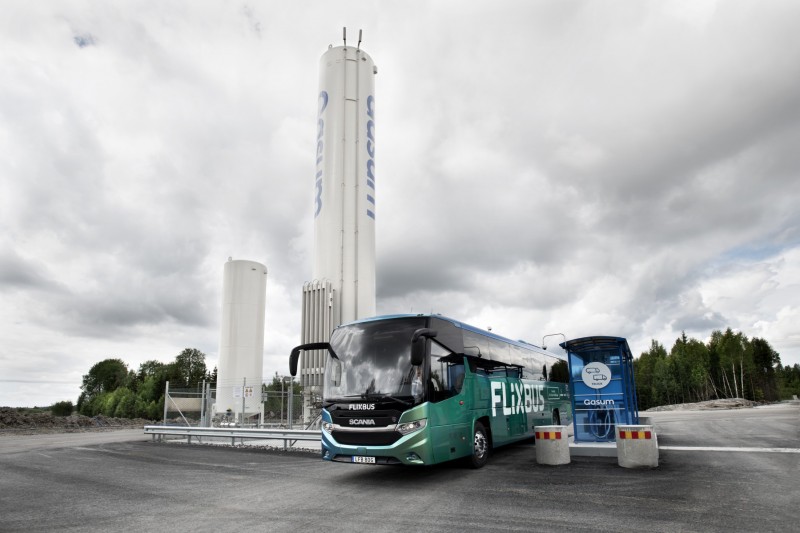
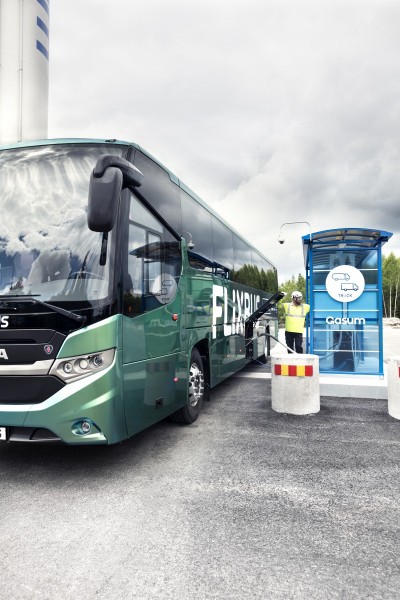
About Flix
Flix intends to transform the public transport sector by offering sustainable and affordable long-distance bus- and train travel solutions in more than 40 countries across four continents. With its asset-light business model and innovative technology platform, Flix, launched in 2013 swiftly established a market-leading position for long-distance bus travel in Europe, North America and Türkiye and is rapidly expanding further into South America and India through its brands FlixBus, FlixTrain, Kamil Koç, and Greyhound.
Driven by increased awareness for sustainable travel, Flix aims to become carbon neutral in Europe by 2040 and globally by 2050. To assess its progress within a scientifically recognized framework, Flix established near-term targets for emissions reduction with the Science Based Targets initiative.
While Flix manages the commercial side of the business such as network planning, pricing, operations control, marketing and sales, quality management and continuous product development with a data-driven approach, trusted Flix partners conduct the daily operations. The innovative combination of Flix’s technology and sales platform with traditional passenger travel has turned a European start-up into a leading and globally expanding travel tech company.
For more information, please visit corporate.flix.com